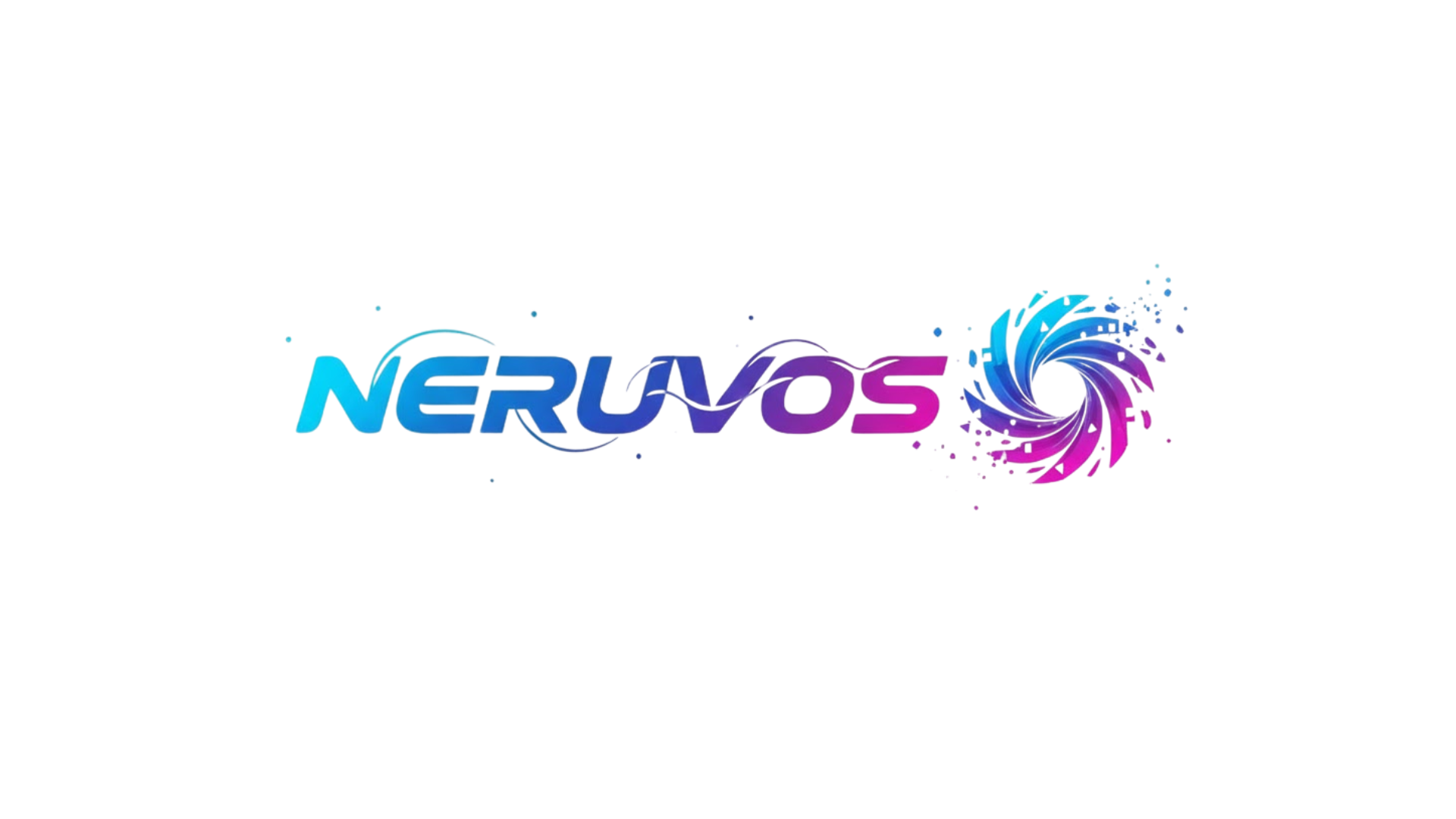The classroom of tomorrow is being built today, not with bricks and mortar, but with algorithms, artificial intelligence, and innovative digital platforms that are fundamentally changing how we teach and learn.
🚀 The Dawn of a New Educational Era
Education has remained relatively unchanged for centuries, with traditional models relying on textbooks, lectures, and standardized testing. However, the emergence of educational technology startups has sparked a revolution that’s reshaping every aspect of the learning experience. These innovative companies are leveraging cutting-edge technology to address long-standing challenges in education, from accessibility and personalization to engagement and assessment.
The global EdTech market has experienced exponential growth, with investments reaching unprecedented levels. What makes this transformation particularly significant is that it’s not just about digitizing old methods—it’s about reimagining what education can be. EdTech startups are creating solutions that adapt to individual learning styles, break down geographical barriers, and make quality education accessible to millions who were previously left behind.
Breaking Down Barriers: Accessibility and Inclusion
One of the most profound impacts of EdTech startups has been democratizing access to quality education. Students in remote villages can now access the same learning resources as those in metropolitan areas. This shift is particularly transformative in developing countries where traditional educational infrastructure has been limited by resources and geography.
Language learning platforms have emerged as pioneers in this space, offering interactive lessons that adapt to each learner’s pace and proficiency level. These applications use sophisticated algorithms to identify weak areas and provide targeted practice, making language acquisition more efficient than traditional classroom methods.
Mobile-first approaches have been crucial in expanding reach. With smartphones becoming ubiquitous even in underserved communities, EdTech companies have developed lightweight applications that work on basic devices and with limited internet connectivity. This strategic focus on mobile accessibility has opened educational opportunities for billions of learners worldwide.
📚 Personalized Learning: Technology Meets Individual Needs
The one-size-fits-all approach to education has long been criticized for failing to address diverse learning styles and paces. EdTech startups are solving this problem through adaptive learning technologies that customize content delivery based on individual student performance and preferences.
Artificial intelligence plays a central role in this personalization. Machine learning algorithms analyze student interactions, identifying patterns that reveal how each learner best absorbs information. Some students thrive with visual content, others with hands-on exercises, and still others through auditory learning. Intelligent platforms can now detect these preferences and automatically adjust their teaching methods.
Real-time feedback mechanisms have transformed the learning cycle. Instead of waiting days or weeks for graded assignments, students receive immediate insights into their performance. This instant feedback loop accelerates learning by allowing students to identify and correct mistakes immediately, reinforcing correct understanding while concepts are still fresh.
The Power of Data-Driven Insights
EdTech platforms generate vast amounts of data about learning patterns, engagement levels, and educational outcomes. When properly analyzed, this data provides invaluable insights for educators, helping them understand where students struggle and what teaching methods prove most effective. This evidence-based approach to education represents a fundamental shift from intuition-based teaching to scientifically validated methodologies.
Gamification: Making Learning Engaging and Fun 🎮
Traditional education often struggles with student engagement, but EdTech startups have discovered that incorporating game mechanics into learning can dramatically increase motivation and retention. Gamification transforms abstract concepts into interactive challenges, making education feel less like work and more like play.
Points, badges, leaderboards, and achievement systems tap into fundamental human psychology, triggering dopamine releases that make learning addictive in the best possible way. Students who might otherwise disengage find themselves competing with peers, striving to reach the next level, or collecting virtual rewards for academic achievements.
Language learning applications have particularly excelled at gamification, creating experiences where users barely notice they’re studying. Daily streaks encourage consistent practice, while competitive elements motivate learners to improve their skills. The result is higher completion rates and better long-term retention compared to traditional methods.
Virtual and Augmented Reality: Immersive Educational Experiences
Virtual reality and augmented reality technologies are pushing the boundaries of what’s possible in education. These immersive technologies enable students to explore ancient civilizations, dissect virtual organisms, or conduct chemistry experiments without physical laboratories—all from their classrooms or homes.
Medical students can practice surgical procedures in risk-free virtual environments, repeating complex operations until they achieve mastery. Engineering students can visualize and manipulate three-dimensional models of machinery, understanding mechanical principles that would be difficult to grasp from textbooks alone. History becomes tangible when students can walk through virtual reconstructions of historical sites.
While VR and AR technologies are still emerging in education, early adoption by innovative EdTech startups demonstrates their transformative potential. As hardware becomes more affordable and accessible, these immersive learning experiences will likely become standard components of modern education.
🌐 Global Classrooms: Connecting Learners Worldwide
EdTech has dissolved geographical boundaries, creating opportunities for cross-cultural collaboration and global perspectives. Students from different continents can work together on projects, sharing diverse viewpoints and learning from each other’s experiences. This global connectivity prepares learners for an increasingly interconnected world where cultural competence is essential.
Live video conferencing platforms designed specifically for education enable real-time interaction between students and expert instructors regardless of location. A student in rural India can receive tutoring from a specialist in the United States, or a classroom in South America can host a guest lecture from a researcher in Europe. These connections were impossible just a decade ago but are now routine.
Collaborative learning platforms allow students to share resources, discuss concepts, and solve problems together asynchronously. These digital spaces foster learning communities that extend beyond physical classrooms, providing support networks and peer learning opportunities that enhance educational outcomes.
Microlearning and Flexible Education Models
Traditional education typically requires large time commitments that many potential learners simply cannot accommodate. EdTech startups have responded by developing microlearning approaches that break complex subjects into bite-sized lessons consumable in minutes rather than hours.
This flexibility is particularly valuable for working professionals seeking to upskill or change careers. Instead of enrolling in multi-year degree programs, learners can acquire specific competencies through targeted courses that fit around existing commitments. The ability to learn during commutes, lunch breaks, or evening downtime has made continuous education accessible to millions who would otherwise be excluded.
Modular course structures allow learners to customize their educational journeys, selecting only the content relevant to their goals. This efficiency reduces both time and financial investments while delivering practical skills that immediately apply to real-world situations.
🎓 Credentialing and Skills Verification
EdTech startups are also revolutionizing how educational achievements are recognized and verified. Digital credentials, micro-certifications, and blockchain-based verification systems provide granular recognition of specific competencies rather than broad degree classifications.
Employers increasingly value demonstrated skills over traditional degrees, and EdTech platforms are responding by creating credentials that directly map to industry requirements. These certifications often carry more practical weight than academic degrees because they verify specific, applicable abilities rather than general knowledge.
Portfolio-based assessment models enable learners to showcase actual work products rather than test scores. This approach provides more authentic evidence of capability and allows students to demonstrate creativity and problem-solving skills that standardized tests cannot capture.
Artificial Intelligence Tutors and Teaching Assistants
AI-powered tutoring systems represent one of the most promising developments in EdTech. These intelligent assistants provide 24/7 support, answering student questions, explaining difficult concepts, and guiding learners through problems step-by-step. Unlike human tutors, AI assistants scale infinitely without additional costs, making personalized support accessible to every student.
Natural language processing enables these AI tutors to understand student questions posed in everyday language, responding with explanations tailored to each learner’s level of understanding. As these systems interact with more students, they continuously improve, learning which explanations work best for different types of questions and learners.
For educators, AI teaching assistants handle routine tasks like grading multiple-choice assessments, managing administrative duties, and even providing first-level student support. This automation frees teachers to focus on higher-value activities like mentoring, facilitating discussions, and developing creative learning experiences.
📊 Challenges and Considerations in EdTech Implementation
Despite tremendous promise, EdTech implementation faces significant challenges. The digital divide remains a critical concern, with many communities lacking the infrastructure, devices, or connectivity required for technology-enabled learning. While EdTech startups are working to address these barriers, equity concerns persist.
Data privacy and security represent another major consideration. Educational platforms collect sensitive information about students, including learning patterns, performance data, and personal details. Protecting this information from breaches and ensuring it’s not misused requires robust security measures and clear ethical guidelines.
Teacher training and institutional resistance also present obstacles. Many educators feel overwhelmed by rapid technological change or threatened by automation. Successful EdTech integration requires not just technology implementation but also comprehensive professional development and cultural shifts within educational institutions.
Balancing Technology and Human Connection
While technology offers powerful tools for education, it cannot fully replace human teachers and the social aspects of learning. The most effective educational models combine technological efficiency with human mentorship, emotional support, and social interaction. EdTech startups that recognize this balance tend to achieve better outcomes than those pursuing complete automation.
The Role of Parents and Communities
EdTech platforms are also transforming parental involvement in education. Mobile applications provide parents with real-time insights into their children’s progress, enabling them to support learning at home more effectively. Communication tools facilitate ongoing dialogue between parents and teachers, strengthening the home-school partnership.
Community learning models leverage technology to create educational resources managed by local communities rather than centralized institutions. These grassroots approaches ensure content remains culturally relevant while maintaining quality standards. EdTech tools enable community educators to access teaching resources, track learner progress, and connect with broader educational networks.
💡 Emerging Trends Shaping Educational Technology
The EdTech landscape continues evolving rapidly, with several emerging trends poised to further transform education. Adaptive assessments move beyond simple right-or-wrong answers to evaluate deeper understanding and problem-solving processes. These sophisticated evaluations provide richer information about student capabilities.
Social-emotional learning platforms recognize that academic success depends on more than cognitive skills. These tools help students develop resilience, empathy, collaboration abilities, and other soft skills essential for personal and professional success. By integrating emotional intelligence development into educational curricula, EdTech startups are preparing more well-rounded learners.
Lifelong learning platforms acknowledge that education no longer ends with formal schooling. Career-long learning has become necessary in rapidly changing economies, and EdTech companies are creating ecosystems that support continuous skill development throughout people’s working lives.
The Investment Landscape and Future Growth
Venture capital investment in EdTech has reached record levels, reflecting confidence in the sector’s growth potential and social impact. Major technology companies, educational publishers, and dedicated EdTech funds are all competing to identify and support the next generation of educational innovators.
This capital influx accelerates innovation cycles, enabling rapid experimentation with new pedagogical approaches and technologies. However, it also creates pressure for quick returns that may conflict with educational best practices. The most responsible EdTech startups balance growth ambitions with commitment to genuine educational improvement.
Emerging markets represent particularly significant growth opportunities, with large populations of young learners and growing middle classes willing to invest in education. EdTech startups that successfully adapt their solutions to diverse cultural contexts and local needs will capture substantial market shares while making meaningful social contributions.
🌟 Transforming Learning Outcomes and Lives
Beyond business metrics, the true measure of EdTech success lies in improved learning outcomes and transformed lives. Numerous studies document how well-designed educational technology enhances student achievement, particularly for learners who struggled in traditional settings. Personalized pacing, immediate feedback, and engaging content delivery help students master concepts they previously found impenetrable.
Career transformation stories illustrate EdTech’s life-changing potential. Individuals from disadvantaged backgrounds have used online learning platforms to acquire skills that led to professional opportunities previously beyond reach. Single parents have completed degrees while raising children, and mid-career professionals have successfully transitioned to new industries—all enabled by flexible, accessible EdTech solutions.

Building an Ecosystem for Educational Innovation
The EdTech revolution requires collaboration among startups, traditional educational institutions, policymakers, and learners themselves. Successful innovation happens when these stakeholders work together, combining technological capability with pedagogical expertise and practical implementation wisdom.
Regulatory frameworks must evolve to protect learners while enabling innovation. Overly restrictive regulations stifle beneficial developments, while insufficient oversight exposes vulnerable populations to exploitation. Balanced policies that prioritize learner welfare while encouraging responsible innovation will determine how effectively EdTech realizes its transformative potential.
The transformation of education through technology represents one of the most significant societal shifts of our era. EdTech startups are not merely improving existing systems—they’re fundamentally reimagining what learning can be. As these innovations mature and scale, they promise a future where quality education is truly accessible to all, personalized to individual needs, and continuously adapted to prepare learners for a rapidly changing world. The journey has just begun, but the destination—a world where every person can realize their full learning potential—justifies the ambitious effort required to get there.
Toni Santos is an education futurist and learning design researcher dedicated to reimagining how people build skills in a fast-changing world. With a focus on cognitive tools, EdTech innovation, and equitable access, Toni explores systems that help learners think deeper, adapt faster, and learn for life. Fascinated by the science of learning and the power of technology to personalize growth, Toni’s journey bridges classrooms, startups, and global initiatives. Each project he shares is an invitation to transform education into a continuous, human-centered experience—where curiosity, practice, and purpose align. Blending learning science, product design, and policy insight, Toni studies models that turn knowledge into capability at scale. His work highlights how thoughtful design and inclusive technology can unlock talent everywhere—across ages, cultures, and contexts. His work is a tribute to: Cognitive learning tools that make thinking visible and transferable EdTech innovation that expands access and personalizes pathways Lifelong learning systems that support relevance, resilience, and purpose Whether you’re building a learning product, shaping policy, or growing your own skills, Toni Santos invites you to design learning for tomorrow—one insight, one practice, one empowering pathway at a time.




